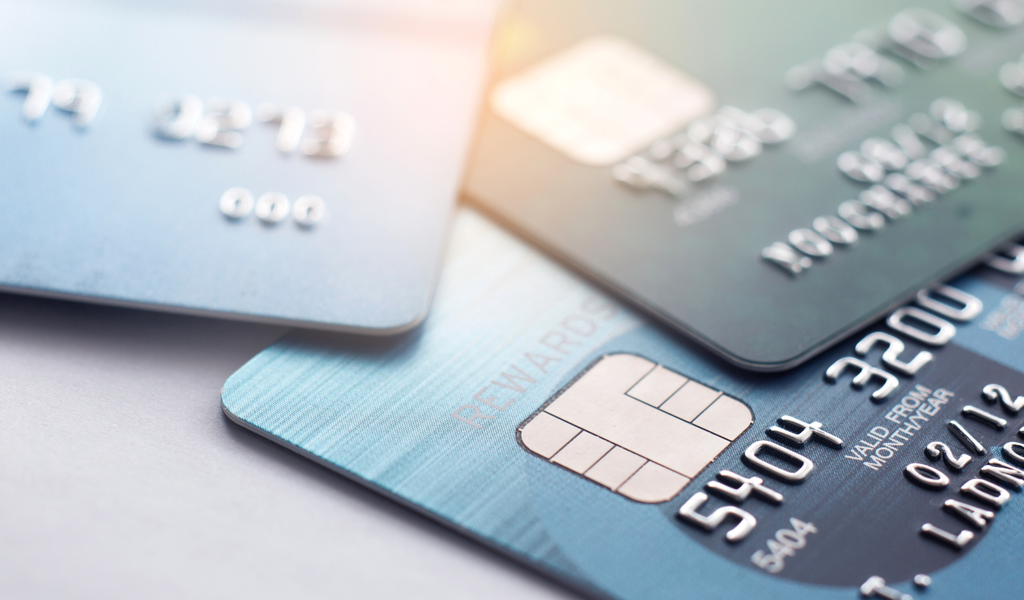In the market for a credit card? Before you sign up for the first one you see, stop and evaluate the different types of credit cards so you know the purpose and benefits of each one. This will help you pick the best credit card to fit your personal needs. Yes, even credit cards come customized for different purposes! They can range from the basic no-frills card to your premium with plenty of frills (i.e. perks, discounts, and other benefits).
Here are 10 types of credit cards and their uses:

Standard Credit Cards
Often referred to as “Plain Vanilla” credit cards, these are the most basic of them all. These credit cards are easy to understand and hassle-free to use, but they do not offer any extra frills or rewards. If you’re not interested in earning rewards and would be happy with an uncomplicated card, the plain vanilla is for you.
The standard credit card comes with a predetermined credit limit, which is used up every time you make a purchase. Once the limit is reached, you are restricted from using the card unless you make a payment for the outstanding balance. Should you fail to make the card payment at the end of the month, a finance charge will be applied. Such cards do not require you to pay the balance in full, but you will be given a due date and minimum payment amounts to meet in order to avoid late charges.
Balance Transfer Credit Cards
Lots of credit cards come with the option to transfer balances, but balance transfer credit cards offer a very attractive introductory rate. These rates may vary – some may even offer rates as low as 0%, but these typically come with a caveat of being charged a fee for every transfer. There is also a certain period imposed upon such low-rate transfers. You will also need to have good credit to be eligible for such cards.
Nevertheless, it is a good idea to consider a balance transfer credit card if you want to save money on a high-interest balance on an existing card. Pick the one with the lowest promotional rate and the longest promotion period to get the best out of them.
Rewards Credit Cards
You may have guessed from the name already, but rewards credit cards offer benefits when purchases are made through them.
When it comes to rewards cards, the 3 most popular types are cashback, points, and travel. Depending on your personal preference and lifestyle, you may opt for one over the other. For instance, some people like the flexibility of cashback offers, while others prefer to redeem their points for cash or other products. The travel rewards card is probably the most popular, especially among frequent travelers, because cardholders are afforded benefits such as free or discounted flight tickets, hotel stays, and other travel perks.
Student Credit Cards
Specifically designed for college students, these cards are meant for young adults who are applying for their first credit card and have little to no credit history. This is a relatively easy way for a first-time applicant to get approved for a credit card, but they have to be enrolled in an accredited 4-year university to be eligible.
Student cards also come with perks like low-interest rates on balance transfers and rewards and perks related to their lifestyle.

Charge Cards
A charge card typically does not have a minimum spending limit, finance charges, or minimum payment amounts. However, it is expected that the cardholder settles the balance in full every month, or they may be subject to late charges, charge restrictions, or cancellations depending on your agreement. Charge cards are usually only granted to those with good credit history.
Secured Credit Cards
People who do not have a credit history or those who may have a damaged financial standing have very few options available to them when applying for credit cards, but one option they do have is to get a secured credit card.
Similar to how lenders require security in order to issue loans, applicants of secured cards will also be required to provide security in order to become a cardholder. The credit limit is then set in relation to the deposit made on the card (it can be equal in value or more). You are still obliged to make monthly payments on the outstanding balance on the credit card.
Subprime Credit Cards
Subprime credit cards are a last resort option for those with bad credit – and one that is best avoided even in such a circumstance.
Such cards target those with poor credit and are one of the only ways for individuals with poor financial history to get approved quickly. However, they come with high-interest rates and fees. They may also have confusing terms that can be tricky to understand. While the Federal Government has laws regarding fee amounts related to subprime credit cards, lenders look for loopholes that allow them to forgo such restrictions.
While subprime credit cards are exactly that – a subprime option, people with poor credit still go for it because they cannot get credit anywhere else. Ultimately, the decision is up to you.
Prepaid Cards
If you want to get a credit card but have a tendency to make impulse purchases that go beyond your budget, a prepaid card may be just right for you.
With such cards, you are required to preload money and are only allowed to spend from the balance remaining on the card. The spending limit is not renewed unless more money is added to the card’s balance. Since you can never spend more than you have, things like minimum payments or late charges do not apply here.
Ultimately, prepaid cards aren’t really credit cards at all and they do not directly affect your credit score. The only difference between a debit card and a prepaid credit card is that the latter isn’t tied to a bank account.
Limited Purpose Cards
These cards, as you may have guessed, have a limited purpose to them and can only be used in certain circumstances/locations. They have a similar concept to standard cards with minimum payment and finance charges. Store credit cards and gas credit cards are some examples of limited-purpose cards.
Business Credit Cards
As the name suggests, business cards are offered for the purpose of business transactions. Business owners can use them as a way to keep their personal and professional purchases separate.
Business cards also come in standard or charge card types. The cardholder’s personal credit history is taken into consideration in the approval process because they will be the ones responsible for making the payments.



